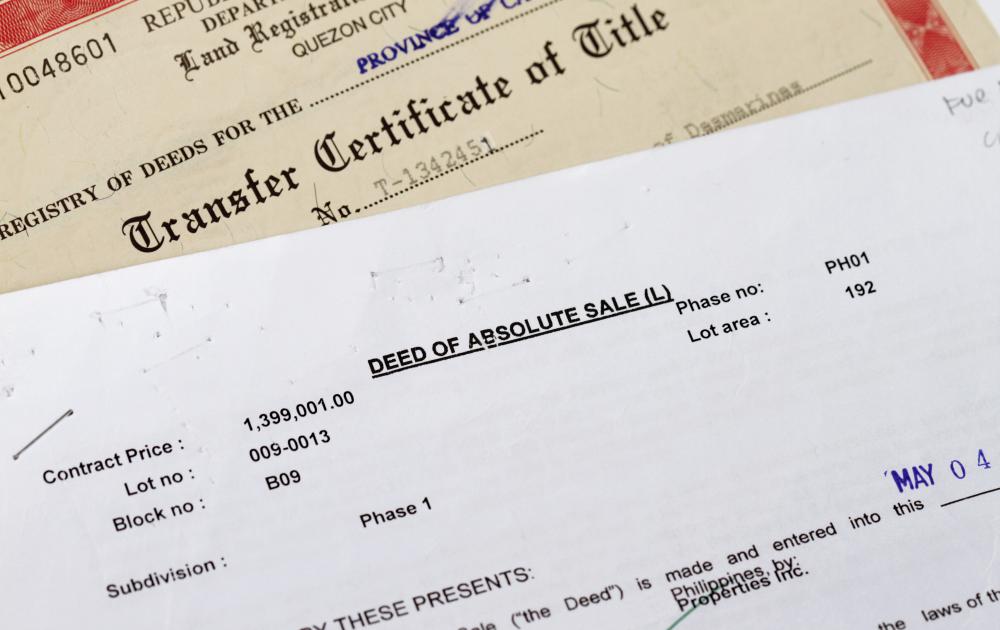At WiseGEEK, we're committed to delivering accurate, trustworthy information. Our expert-authored content is rigorously fact-checked and sourced from credible authorities. Discover how we uphold the highest standards in providing you with reliable knowledge.
What Are the Different Types of Warranty Deed?
A warranty deed is one of the three main types of deeds, which include bargain and sale deeds, and quitclaim deeds. In real estate law, a promise or a guarantee is a warrant, and a document expressing that promise or guarantee is a warranty. Two main variations exist: the broad, protective general warranty and the more restricted special or limited warranty. The statutory warranty deed varies by its source of authority.
A general warranty deed offers the broadest guarantees to the new owner. The seller of the land has made a covenant with the buyer that the seller not only owns the land but that it has no encumbrances other than those specifically described in the deed. Commonly, the deed language expresses four guarantees: the seller owns the land and has the right to convey ownership; the buyer may quietly enjoy the land; the land and buildings are free of encumbrances; and the transfer of ownership is permanent.

The quiet enjoyment of the land or peaceable possession is particularly broad. It implies that no circumstances impinge upon use of the land and buildings for which they are intended. Sellers must carefully evaluate their property to ensure that all factors that would restrict the quiet enjoyment of their property are fully detailed and disclosed. As an example, if a homeowner has experienced leakage in the basement, it is generally safer to disclose the fact, even if the problem has been explored and mitigated.
A special or limited warranty deed offers the same guarantees as a general warranty deed, but only for the period of time during which the seller owned the property. Defects or encumbrances on the property that occurred before the owner took title are not warranted. This type of deed is common when the conveyance is from an entity that has not controlled the property and did not acquire the property with a general warranty deed. Deeds acquired through bank foreclosures or tax deed sales, or sometimes through inheritance, are often conveyed with this type of deed.
A statutory warranty deed is a form of a general warranty deed established by state real estate law. The law typically inserts the four general guarantees without the necessity of actually including the written language. Some real estate experts believe there is danger in this deed, in that the seller may be making promises unintentionally and unknowingly that may be harmful for both parties. Others counter that it protects the buyer, who is seen to be potentially less informed.
AS FEATURED ON:
AS FEATURED ON:











Discuss this Article
Post your comments